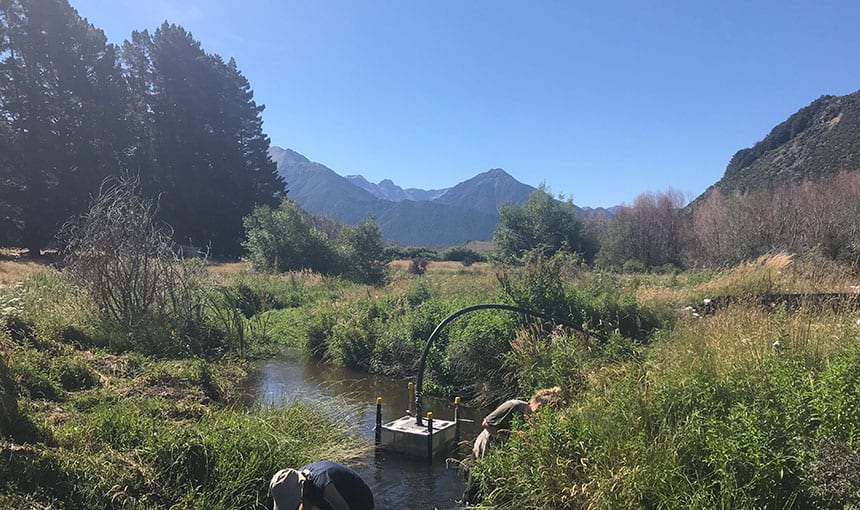
The Master of Science student at the University of Canterbury is one part of the BioHeritage project that’s investigating the recovery of streams and rivers.
Healthy waterways support a number of native plant, invertebrate and fish species. However, as they become degraded, barriers can develop that prevent native populations being restored.
Kate is looking at how snail density impacts the ability of other invertebrates to colonise an area. “In areas of high snail density, like degraded stream systems, when the abiotic factors are restored, macroinvertebrates are still likely to have low colonisation rates,” she says.
“This is due to being outcompeted – regardless of the improved water quality.”
Kate collected snails from Grasmere Stream which runs through the Cass Research Station. She placed them in rock baskets at different densities and measured the colonisation rates of other invertebrates within the baskets.
“This research, especially if looked at more in-depth during my Masters, could assist stream restoration efforts by finding a possible density threshold.
“If we can control the snail populations to that particular density threshold, we could enable other invertebrates to successfully colonise the area and therefore improve the biotic health of the waterway.”
Kate is one of many students supported by BioHeritage who have been out and about conducting field work this summer. Keep an eye out on our Facebook, Twitter and Instagram pages for more student stories.